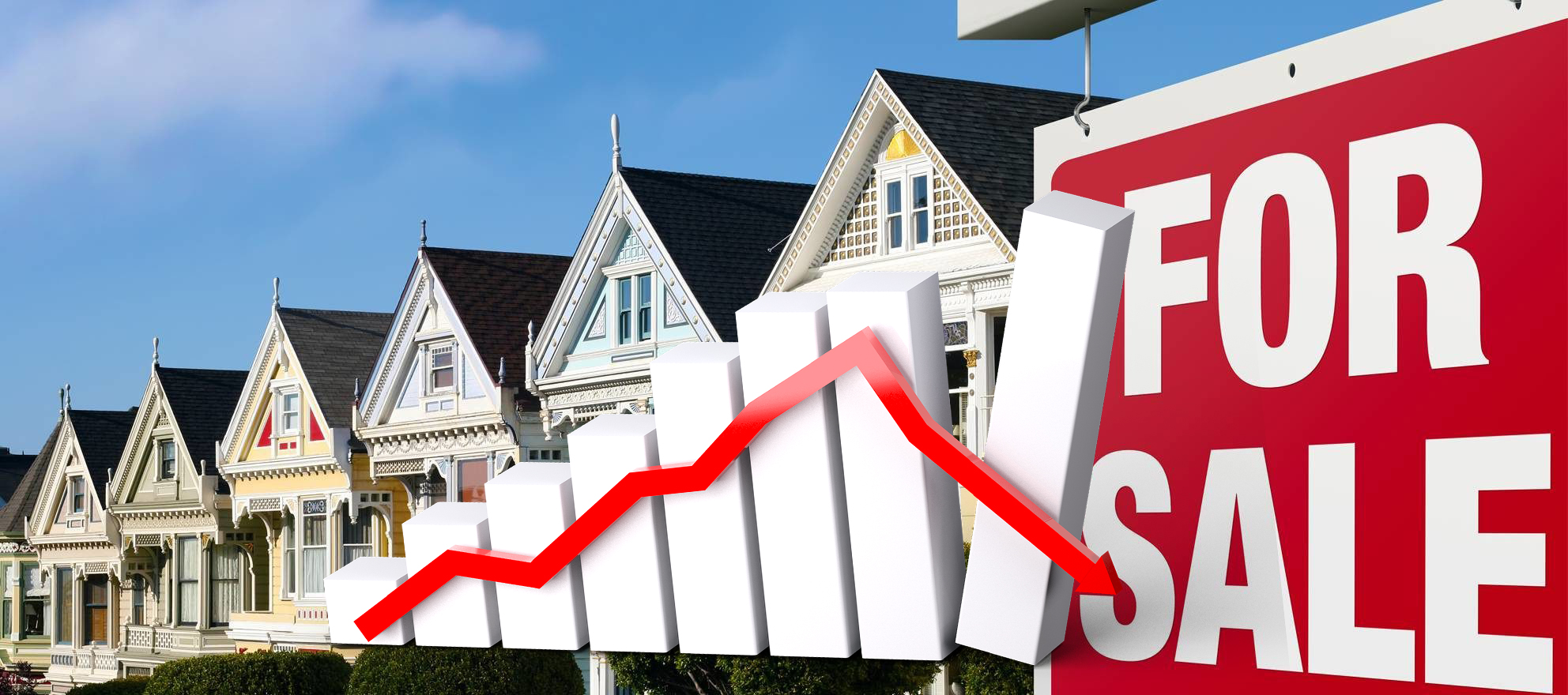How to Make Intelligent Investment Decisions During a Housing Market Crash


Over recent times, the news has shown one catastrophe after another. With inflation running high and interest rates increasing to compensate, many people are now anticipating a housing crash. Maybe you’re one of them.
If that’s the case, the obvious question to ask yourself is whether you should invest in real estate now or wait to take advantage of potential price declines in the future. Nobody has a crystal ball, so whichever route you take, you have to be prepared to face unfavorable consequences. But looking at the economic theory behind housing market cycles can provide us some guidance about what to expect, and tracing the reasons behind our psychological concerns is also helpful.
Let’s take a look.
Part of the reason that the possibility of a housing crash has generated so much fear is our recent history. After the 2007 financial crisis and the collapse of the housing market, many people are fearful of a repeat.
Housing prices in the US declined by almost 20%, and many people lost their jobs and homes — and even those who weren’t directly affected probably know someone who was. So, it shouldn’t come as a surprise that this has had some level of impact on our national psychology. To some extent, we expect the worst when we see headlines about economic crises.
While it’s totally valid for people to feel concerned and have some degree of skepticism about pouring all their resources into housing right now, it’s important to understand that housing crashes of the kind we experienced in the late 2000s are highly unusual.
In fact, the 2007 crisis is the only time that house prices have ever crashed, if we define a crash as a reduction in value of 10% or more. Sure, there have been some small blips along the way, and maybe they’d be more significant if we accounted for inflation, but they’ve never been sustained or catastrophic apart from that one event in recent history.
One happened in the early 90s. Property prices briefly dropped by about 8%, but they began to recover a few months later and soon returned to their previous point (and higher).
The other took place in 2017, when house prices dropped by around 5% at first and remained at a low point before rising again.
All of this is a normal part of market cycles. The economy never increases indefinitely — it enjoys periods of high growth followed by periods of low or negative growth, and the real estate market is no exception.
Even though the housing crash of 2007 was the exception to the rule, it’s not fair to brush over it completely.
Part of the reason for such a drastic crash was the scale of the recession that happened at the time. Another piece of the puzzle was the prevalence of speculative property buying and subprime lending that allowed unsuitable candidates to retain mortgages relatively easily.
In other words, what happened went beyond the standard “boom and bust” cycle and was due to the abnormal events and policies at the time.
So now, let’s fast forward to today and what we should be expecting from the housing market. For one, experts and lenders have learned their lessons from 2007 and are more careful about their property investments and who they lend to. Credit standards now are drastically different, and subprime mortgages have all but disappeared.
Some are worried that excessive home construction could lead to an over-supply of homes — construction levels have finally returned to the same levels as the 90s after falling following the crash. However, even though certain areas may be at risk of becoming overbuilt, the developments seem more likely to stabilize the market than cause a crash on the national scale.
Then there are other economic and demographic trends to consider. Interest rates are still relatively low, even if they’ve increased over the last few years — so mortgages are still viable for many. Plus, demand for buying houses remains strong as a whole.
Even if we see some form of housing crash at some point over the next few years, chances are that it will pale in comparison to what we experienced in 2007. And we’re likely to see house pieces continue to increase until the end of 2022, so there’s no need to panic yet.
When you’re surrounded by headlines and people saying that we’re on course for another huge housing crash, it’s hard not to panic — especially when we can all remember that exact event happening not long ago. But once you look at the 2007 crisis in perspective, things don’t seem quite so clearcut.
So, if you find the investment property of your dreams at what seems like a good price, don’t try to time the market. Even if prices do decline briefly, chances are that they’ll be back on track within a few years anyway.